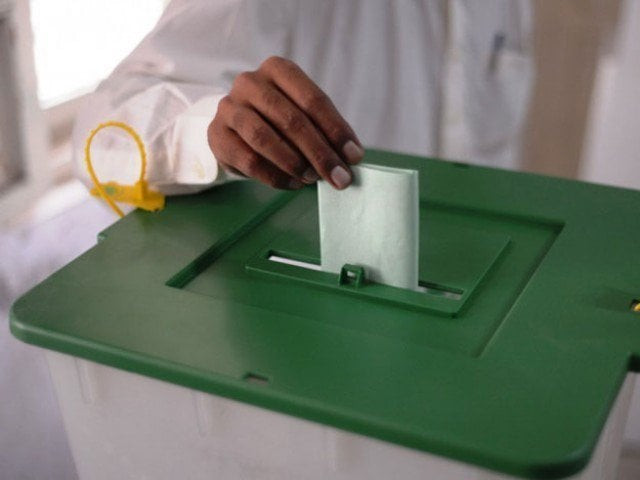NA-4 by-elections: Cellphones banned in polling stations
The Deputy Commissioner's office issued a notification under Section-144 of CrPC

PHOTO: AFP
According to a notification issued under Section-144 of the Criminal Procedure Code (CrPC) by the deputy commissioner’s office, the ban has been imposed to avoid any untoward incident on the by-election day.
The seat fell vacant after the demise of Pakistan Tehreek-e-Insaf (PTI) MNA Gulzar Khan. As per the Election Commission of Pakistan’s (ECP) directives, Tuesday was the last day for the election campaign by the candidates. The ECP has ordered troop deployment at the polling stations to ensure security during the election process.
NA-4 by-polls: Years-long alliance against militants breaks up over political affiliation
Meanwhile, an audit report revealed that 95% of the polling stations set up for the by-election lack essential accessibility criteria for people with disabilities, ailments and of old age.
The report issued by the Pakistan Alliance for Inclusive Elections (PAIE), a sister organisation of the Centre for Peace and Development Initiatives (CPDI) working on democratic rights of people with disabilities, disclosed that only 5% of the polling stations were accessible to the groups with special needs.
The survey conducted from October 16 to 22 revealed that 42% polling stations lack a firm and obstacle-free passage to the building, 75% buildings do not provide a level access to the entrance and 93% of them do not have a ramp to facilitate wheelchair users.
The report pointed out that smaller gates of the buildings were likely to be opened instead of the large ones on the polling day. “Smaller gates in the polling stations possess multiple problems like lesser opening width than the minimum standard of 32 inches. Secondly, the iron bar at lower edge of the metal gates is always thicker than the maximum threshold standard of 6mm.”
Another obstruction for the persons with reduced visibility can be poor lighting. The election laws require presiding officers to display the results at the entrances to the polling stations after the counting.
NA-4 by-election: Canvassing end at midnight
“Only 17.5% of the polling stations possess exterior lighting arrangement, leaving 82.5% sampled polling station entrances unlit at the time of low visibility.”
The study says 87% of the inaccessible polling stations can be easily modified to make them accessible. It requires minor changes like construction of small ramps at entrance and in the building, levelling of pathway in front of polling stations, removal of protruding objects from pathways and in the buildings, and instructing the security staff to allow the people with special needs to pass through large gates.
Speaking to The Express Tribune, CPDI’s Senior Programme Manager Raja Shoaib Akbar said 40 of the 269 polling stations were evaluated for the study. PAIE members expressed the hope that the ECP would get the minor changes done to make all polling stations accessible before next year’s general elections.













COMMENTS
Comments are moderated and generally will be posted if they are on-topic and not abusive.
For more information, please see our Comments FAQ